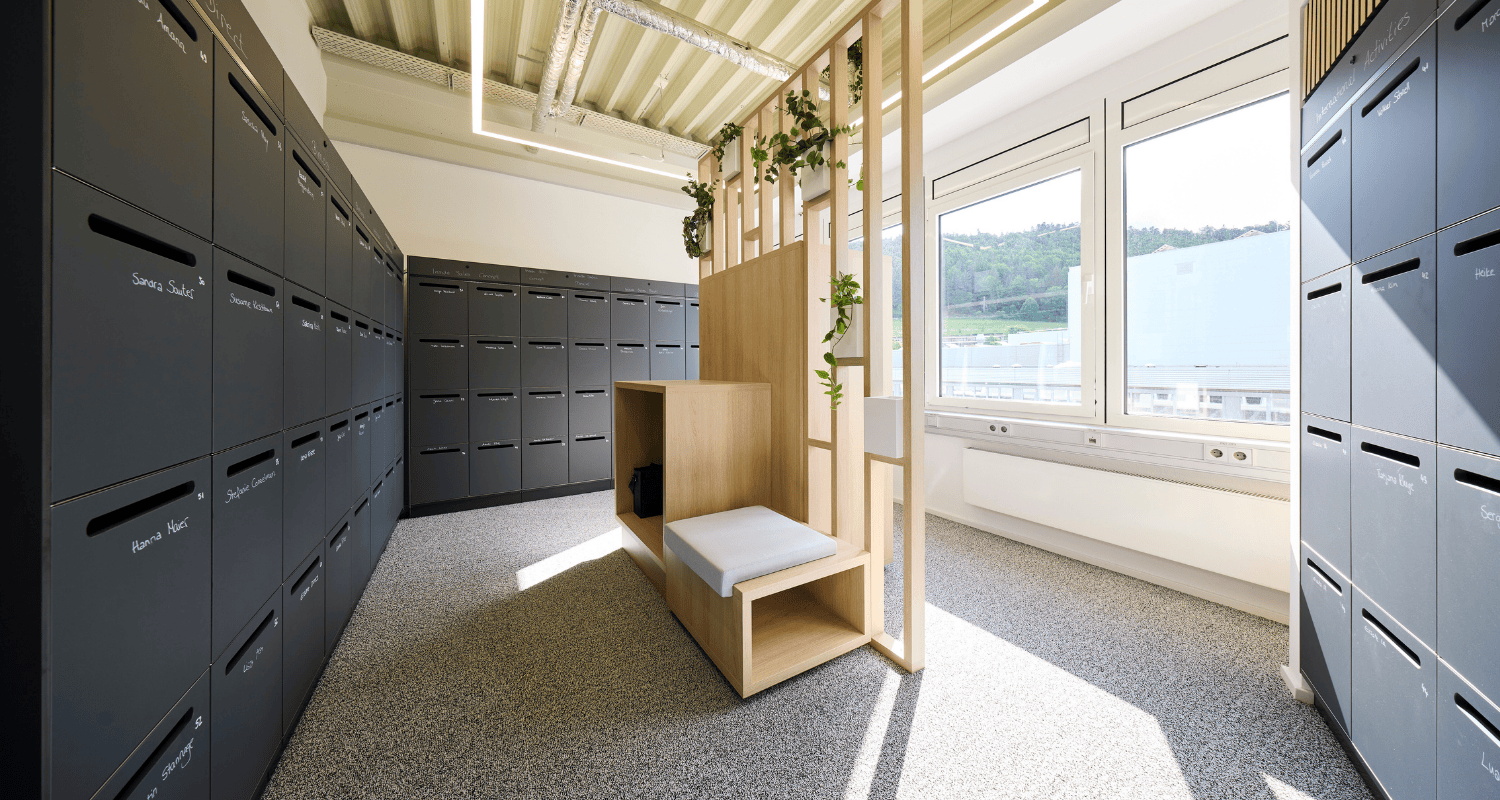Clean desk, clear head: How organization at work increases employee well-being


Order as a success factor in the workplace
In debates about modern working environments, one topic is emerging more and more frequently: the clean desk. But what exactly does the term “clean desk” mean?
A clean desk policy requires employees to leave their workplaces free of documents and personal belongings after work or during extended absences. This includes tidying up documents, notes, business cards, and private items (Robert Sheldon, 2024).
What does clean desk policy mean?
This practice not only promotes order, but also has significant benefits for efficiency and safety in the workplace. In the past, the introduction of a clean desk policy was primarily a decision by management.
Today, such guidelines primarily serve to ensure that no important documents are left behind and that data protection and data security requirements are met. Another reason for introducing clean desk policies is that they are a fundamental requirement for implementing desk sharing systems.
Efficiency and safety through a clean workplace
Such desk sharing systems require a tidy workplace in order to be used flexibly. In flexible office environments, a clean desk policy is essential to avoid potential conflicts and promote a harmonious working atmosphere. It ensures that shared work areas always remain tidy and inviting, which supports the collaboration and well-being of all employees (Robert Sheldon, 2024).
A clean and organized workplace offers numerous benefits that not only promote personal productivity, but also have a positive impact on the entire working environment. Good organization saves employees time and reduces costs: They spend less time searching for documents and materials, which significantly increases their productivity.

Productivity through organization: How a clean desk saves time
At the same time, a tidy desk promotes concentration and reduces distractions, further increasing efficiency. Studies show that employees spend up to 2.5 hours a day searching for information — a time that can be significantly saved through organization (Jochen Mai, 2024).
Order as a contribution to safety, professionalism and well-being
A clean desk policy also ensures greater data protection and security by ensuring that sensitive documents are kept safe and do not fall into the wrong hands. This is particularly important in offices with frequent customer contact or in sensitive industries such as the financial sector (Jochen Mai, 2024). A tidy office also contributes to a professional appearance: It leaves a positive impression on customers and visitors and signals a structured, efficient working environment that creates trust and underlines the professionalism of the company.
When talking about the positive benefits of introducing a clean desk policy, the psychological effect on employees should not be ignored. A clean workplace promotes health and reduces sick days, as cleanliness reduces the risk of infections and illnesses. This results in a lower failure rate and a healthier working environment.
In addition, the introduced order has a positive effect on mental load. A messy workplace is often perceived as an additional source of stress, while a clean and organized environment significantly reduces this burden. Less stress promotes employee well-being and contributes to a more productive and happier workforce (Jaqueline Post, 2024).
How can the introduction of the clean desk policy be specifically integrated into an employee's daily routine?
Clean desk in everyday work: An example day
A typical working day in a hybrid work model with desk sharing can be structured as follows:

In the morning or the day before: book a desk
- Desk booking: Before the office day, employees use a booking platform, such as goconut, to reserve a free desk. This can be done via an app or an online system that shows availability and makes booking easier.
- Depending on the model, employees can choose on a daily basis whether they want to work in the office or remotely, which gives them flexibility.
Arriving at the office:
- After arriving at the office, employees take a seat at their booked workplace. They set up their workplace according to their individual needs, for example by adjusting the height-adjustable desk and ergonomic chair. Before that, every employee retrieves their personal belongings from their own lockers.
Productive working time
- Concentrated work: Uniformly equipping workstations with monitors, docking stations and other devices promotes high productivity.
- If necessary, employees can book meeting rooms or meet in creative zones to work on projects together.
In the evening: tidying up and leaving the office
- Implement a clean desk policy: At the end of the working day, employees clean up their workplaces, store personal items and documents securely to prepare the desk for the next user.
- One way to safely store personal belongings could be to introduce lockers. Every employee can complete their materials in the subjects.
Clean desk as part of corporate culture
As the exemplary daily routine shows, order can become an important part of corporate culture. A clean desk strengthens employees' sense of responsibility, as each individual is responsible for maintaining a basic order in the office and thus contributing to an efficient working environment. In order to further simplify this daily routine for employees, a workplace management tool is essential, as it offers the option of booking vacant workplaces.
In conclusion, the introduction of a clean desk policy has numerous benefits for employees and companies. It promotes efficient working, increases productivity and contributes to a healthier and stress-free working environment. By integrating principles such as minimalism, paperless work and the use of workplace management tools, order in the workplace can be ensured in the long term. This strengthens employees' sense of responsibility and promotes a positive corporate culture. A clean and well-organized workplace is therefore not only a sign of professionalism, but also a decisive factor for the well-being and efficiency of the entire workforce.
Are you now interested in implementing clean desk policies and desk sharing in your company?
Then feel free to contact us for a non-binding conversation or test our free demo version.
Sources
https://www.computerweekly.com/de/definition/Clean-Desk-Policy-CDP
https://karrierebibel.de/clean-desk-policy/









